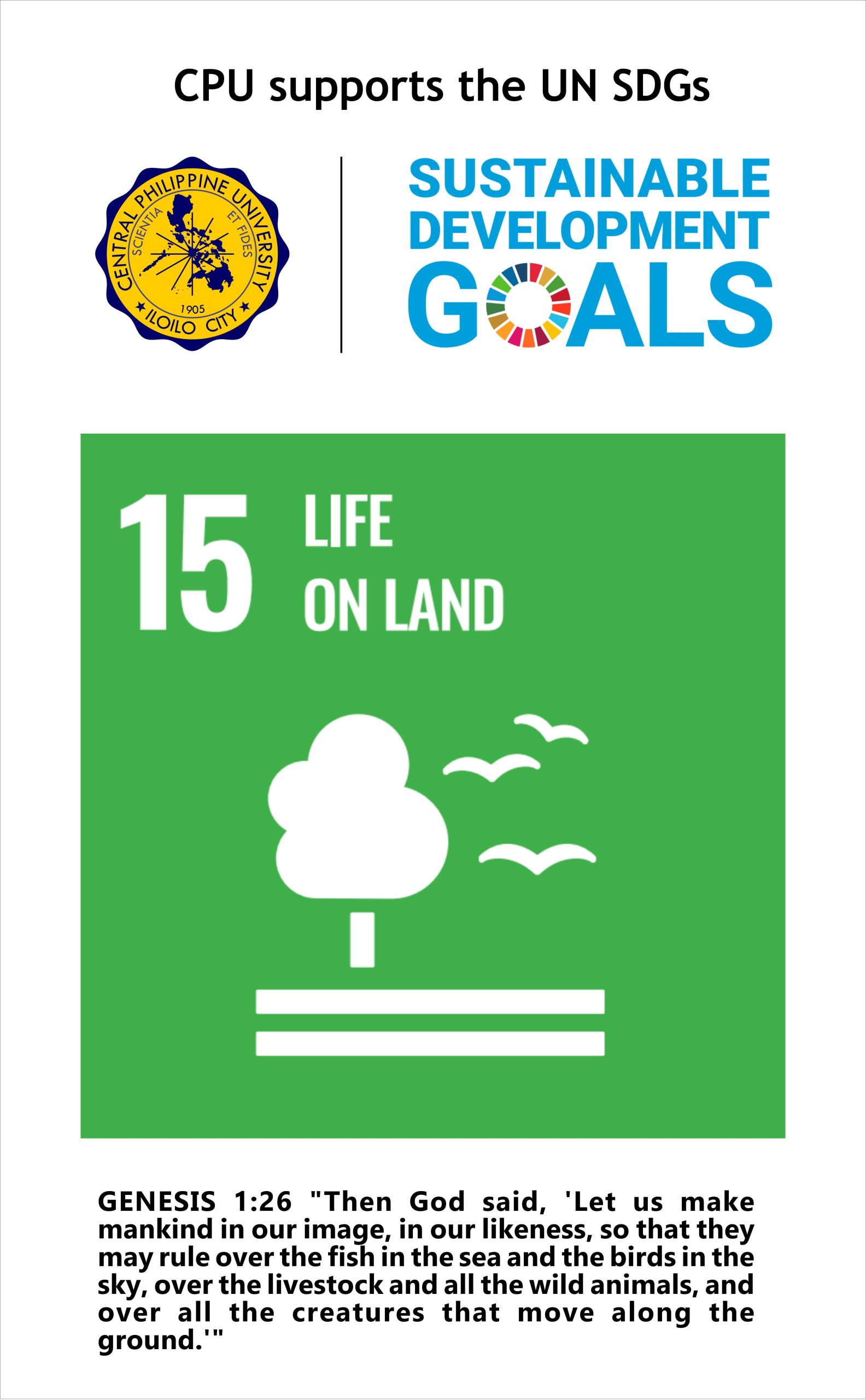
“Life on Land” – Seeds of Faith – September 16, 2024
Today, we continue our Seeds of Faith series on the Sustainable Development Goals (SDGs) of the United Nations, proudly supported by Central Philippine University. Our focus is on the fifteenth goal: Life on Land. This SDG emphasizes the need to protect, restore, and promote the sustainable use of terrestrial ecosystems. Our guiding scripture comes from Genesis 1:26, which says, “Then God said, ‘Let us make mankind in our image, in our likeness, so that they may rule over the fish in the sea and the birds in the sky, over the livestock and all the wild animals, and over all the creatures that move along the ground.’”
First, embrace our role as stewards.
From the beginning, God appointed humanity as the stewards of His creation. He gave us dominion, not to exploit, but to care for the land and the creatures within it. This role as stewards calls us to protect and nurture the forests, animals, and ecosystems that are a vital part of God’s world. We must recognize that every tree, every animal, and every piece of land is part of His design, and we are entrusted to ensure their well-being. Embracing this role means actively participating in conservation efforts and promoting practices that protect our environment.
As we live out our stewardship, we honor God by reflecting His care and love for creation. Just as He sustains us, we are to sustain the land, treating it with respect and ensuring it remains fruitful for future generations. This can be achieved through simple actions like reducing our waste, supporting reforestation projects, or advocating for policies that protect natural habitats. By doing so, we fulfill the mandate given in Genesis to care for the earth as responsible stewards.
Second, restore what has been harmed.
Throughout history, human actions have damaged many of the ecosystems we were meant to protect. Deforestation, pollution, and unsustainable practices have harmed the land and led to the extinction of countless species. As Christians, we are called to be agents of restoration, just as God restores what is broken in our lives. Our role in restoring the land involves participating in efforts to heal ecosystems, from planting trees to cleaning up polluted areas. Restoration is a powerful reflection of God’s redemptive work in the world.
In our work to restore what has been harmed, we testify to God’s power of renewal. Just as God brings hope and healing to us, we can bring life back to the earth. Whether through individual efforts or collective action, we must take steps to repair the damage done to God’s creation. By restoring the land, we align ourselves with God’s plan to bring wholeness and redemption to all that He has made.
Third, sustain our resources for future generations.
Sustainability is about ensuring that the land continues to provide for future generations. God’s command in Genesis was not only for Adam and Eve but for all of us. We are to rule over the land in a way that preserves it for those who will come after us. This requires mindful consumption of resources, reducing waste, and living in harmony with the earth’s natural cycles. To sustain the land means to ensure that it remains fruitful and able to support life for years to come.
Sustaining the earth’s resources reflects our trust in God’s provision. When we live sustainably, we show that we trust in God’s ability to provide for all our needs, and we set an example of responsible living for future generations.
As we reflect on SDG 15: Life on Land, may we commit to embracing our role as stewards, restoring what has been harmed, and sustaining the resources entrusted to us.
May God bless us all!
Sincerely,
Rev. Dr. Francis Neil G. Jalando-on
Director
Office of Communications
Central Philippine University
